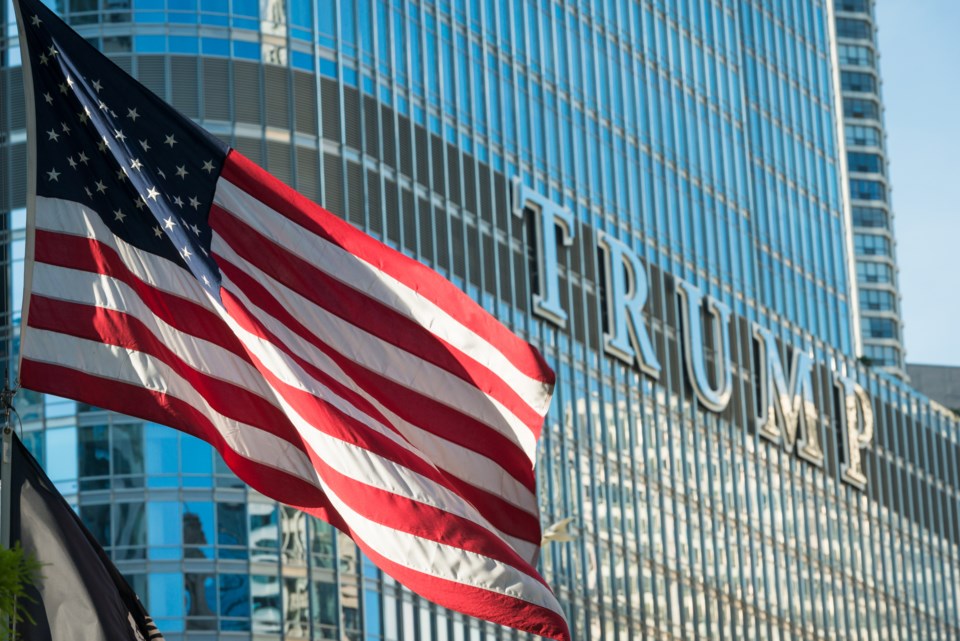If there’s one thing that can send shock waves through an already turbulent housing market, it’s a full-blown tariff war. And with recent U.S. trade policies throwing yet another wrench into Canada’s economic machinery, B.C.’s real estate market is staring down a scenario that’s equal parts frustrating, unnecessary and entirely avoidable.
According to Brendon Ogmundson, chief economist of the BCREA, tariffs are nothing short of “economic self-sabotage.”
He explains: "Ultimately, the story of tariffs is one of economic self-sabotage with a litany of unintended consequences — rising costs, diminished competitiveness and weakened ties with critical trading partners. For Canada and the United States, erstwhile allies in a deeply integrated North American economy, such measures are a lose-lose proposition. British Columbia, with its relatively diversified trade portfolio, may weather the storm better than other provinces more reliant on U.S. markets."
If that all sounds familiar, it's because we've been here before.
According to Ogmundson: "The scars left on the province's forestry sector by earlier trade skirmishes serve as a sobering reminder that even partial insulation offers limited reprieve. For the B.C. housing market, the most likely scenario involves a temporary decline in housing activity followed by a strong recovery as the Bank of Canada responds to a severely injured Canadian economy and mortgage rates plummet."
Tariffs equal higher costs, which equals housing headaches
Housing affordability is already on life support and tariffs could deliver the next gut punch. Why? Because tariffs on imported building materials (think lumber, steel and aluminum) push up construction costs, squeezing supply just when we need it most. That means:
- New housing projects delayed or scrapped due to higher material costs.
- Developers passing costs onto buyers — because let’s be real, they’re not eating the difference.
- Renovations and secondary suite construction slowing down, limiting much-needed rental supply.
In short, tariffs don't just impact trade — they bloat costs at every level of the housing supply chain.
But let’s break this down further — what does this mean for B.C.’s already strained housing market? Developers facing higher costs may re-think project timelines or even cancel builds outright, leading to fewer new homes hitting the market. Given that B.C. is already dealing with a severe housing shortage, this will further reduce supply and keep prices elevated. Buyers looking for pre-sale units may find fewer options available, or worse, projects put on hold indefinitely as builders wait for material costs to stabilize.
Meanwhile, the impact doesn’t stop at new builds. Homeowners looking to renovate or build secondary suites to increase rental supply will also feel the pinch. If lumber and steel prices soar, so do the costs of basement suites, laneway homes and multi-unit conversions. This means fewer rental units coming onto the market, further exacerbating BC’s rental crisis.
The Bank of Canada’s silver lining: rate cuts incoming?
Here’s where it gets interesting. If the Canadian economy stumbles hard enough, the Bank of Canada could slash interest rates to counteract the damage. And while that’s a nightmare scenario for economic growth, it’s a lifeline for B.C. homebuyers desperate for relief from sky-high mortgage rates. Lower borrowing costs could fuel a rapid market rebound, flipping today’s slowdown into tomorrow’s buying frenzy.
A cut in interest rates would immediately lower mortgage costs, allowing more buyers to enter the market. For those who’ve been sitting on the sidelines, lower monthly payments could mean the difference between renting and finally stepping onto the property ladder. Investors, too, would likely take advantage of cheaper financing, leading to higher demand and an upward push on home prices. While this would be welcome news for sellers, it could also mean a shorter window of affordability before prices start climbing again. The question is: will buyers act fast enough to take advantage of it?
What should B.C. homebuyers and investors expect?
- Short-term uncertainty: expect a slower housing market in the immediate future as costs rise and consumer confidence wavers. With material costs up and borrowing power still constrained, many buyers may pause their home search, waiting for more favourable conditions.
- Increased construction costs: builders will pass added expenses down the chain, making new housing less affordable. This could lead to fewer new listings hitting the market, worsening B.C.’s already tight supply. Additionally, pre-sale projects could face delays or cancellations, leaving buyers with fewer options.
- Potential rate cuts: the Bank of Canada could step in with lower interest rates, triggering a strong market recovery later on. However, the impact won’t be immediate — historically, rate cuts take months to filter through the housing market. Buyers and investors who are prepared to act quickly when rates drop could gain a serious advantage before competition intensifies.
A lose-lose situation
Tariffs are a zero-sum game and history proves they do more economic damage than good. For B.C. real estate, the only certainty is more volatility — a turbulent stretch ahead before the market finds its footing again.
The question is: will policymakers course-correct before the damage is done? Or are we in for another round of economic self-sabotage? Time will tell, but that is a 30-day ticking time bomb.
Erin Best is REW’s director of real estate and industry engagement.



